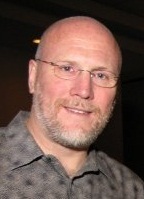It’s not as if the answers to the myriad questions asked every day of the many players in the healthcare industry aren’t accessible. It’s a matter of finding and understanding them.
“They’re in a format very difficult to decipher,” says John Zubak, CEO of Viiad Systems, a Langhorne-based company. “Having someone come in the door and their eligibility is checked and the basic info to take care of billing is there makes it simpler and saves time and money without extra equipment.”
Viiad makes that possible with its health ticket, patent-pending technology described as part-ATM card and part-airline E-ticket. The health ticket contains FAQs about copays, deductibles, pharmacy benefits and laboratory issues. Viiad markets the product to insurers and third-party administrators and employers. Zubak says the product cuts administrative costs by 10-25 percent.
Today’s physical ID card is limited in size and how much information it can hold–not to mention its cost ($2-$10 each) and environmental impact–and different systems can’t talk to each other. Zubak says that with healthcare reform will likely come even more options, and that the health ticket will be even more useful.
“We’re coordinating all these pieces,” says Zubak. “The reason we’ll have a great health system is competition. It needs better communication.”
The health ticket was launched in 2007 and since then, Viiad added dental, pharmaceutical and workers compensation benefits to its arsenal. Viiad, which has grown to more than 30 employees, has nearly 40 clients and 1 million potential users. By year’s end, it is hoping to provide access to the health ticket to 10 million.
“We’ve had a lot of interest from the private sector because it’s paying the bill,” Zubak says. “Anything that’s new takes time, but we’ve had very little resistance.”
Source: John Zubak, Viiad Systems
Writer: Joe Petrucci
